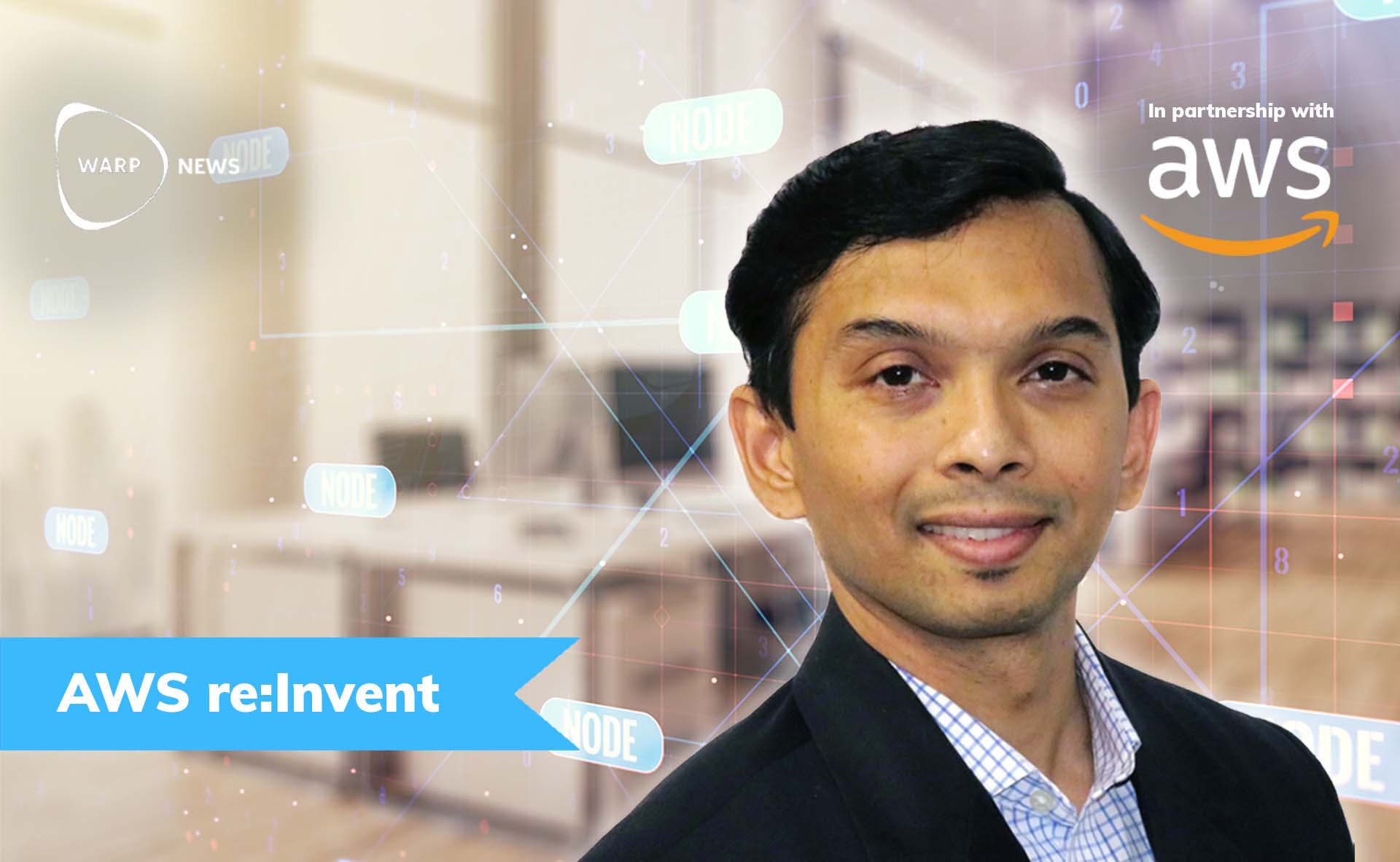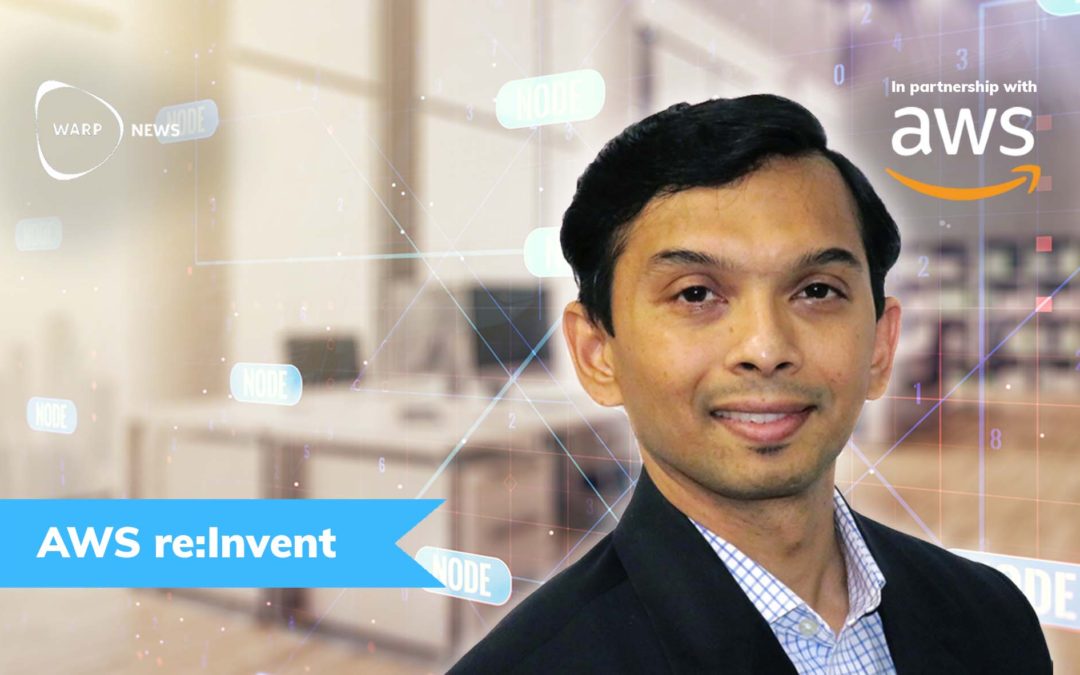
Vikram Anbazhagan is the Director of Amazon Lex technology within the AWS AI team. With Amazon Lex, it is possible to build, for example, chatbots based on natural speech. During his thirteen years at the company, he has been involved in developing a wide range of AWS cloud services. During the ongoing conference re:Invent, he takes the opportunity to tell Warp News about some exciting applications of machine learning.
"Take, for example a customer service. When you call in, you often hear, 'this call is being recorded for training purposes'. In the past, they may have listened to two to three percent of those calls because they had to do it manually. But with the help of speech recognition and Natural Language Processing (NLP) we can convert the conversation into a text file, and it can then be analyzed with machine learning and based on that you can get important information: Was the customer satisfied? Why did it ring? What did the salesman say? All that can be analyzed, and the boss can get an idea of what is going on in hundreds of thousands of conversations."
Anbazhagan says that, among other things, the New York Times is one of AWS' customers who have used their tools to gain better insights into how customer service works.
Automatic notes for doctors
One sector for which AWS has developed specific services is healthcare. An example is a transcription service that doctors can use.
Imagine a patient and a doctor talking to each other. It can then automatically generate notes – while the conversation is in progress. And once you have the notes, you can apply NLP to them to get information about a diagnosis, medication, and more.
During the pandemic, AWS assisted the CDC, the US public health authority, says Anbazhagan.
"They received many questions about vaccines, and in just eight weeks, we could help them set up a call center with 21,000 respondents so that they could handle all these calls and thereby reduce hesitation about vaccines."
"Another example is all virtual meetings that take place now and that we, with the help of machine learning, can generate subtitles for these meetings."
A world where everything can be translated
Does this mean we are heading towards a world where it does not matter what language we speak?
"That's how it already works. An example I can mention is the gaming industry. Take, for example, a gamer who is in Germany and wants to talk to someone in China. Now they can simply use our translation tools so that those who speak Chinese read the chat in Chinese, even though those in Germany write in German."
There is no doubt that there are many exciting applications. But is machine learning really something for everyone?
"More and more companies around the world are jumping on this bandwagon. AI and ML will change all industries" – Vikram Anbazhagan
"Around the world, more and more companies are jumping on this bandwagon. AI and ML will change all industries. It is about creating better products, better customer experiences, more individualized services, and a more local experience. So companies that are careful not to fall behind need these tools."
Everyone should be able to use the technology
Vikram Anbazhagan points out how their tools are developed for users with different background skills.
He describes it as different levels, which are aimed at users with different technical knowledge. From advanced computer scientists or researchers, via developers who are not experts in machine learning, to developers who have no knowledge about machine learning at all but want to use it to build a cool application, like a chatbot.
The point is to provide services that enable users at different levels to take advantage of the possibilities of machine learning.
"You may be an IT administrator and want to use our service Amazon Kendra to set up a smart search service for the company's internal documents. Then it only takes a few clicks to get started. You may not even know that it is machine learning under the hood, but only see the cool results."
"Democratize machine learning"
Another step in what AWS calls "democratizing machine learning" is Amazon SageMaker Studio Lab, which was launched recently and is a development environment that can be used free of charge by, for example, students or associations. Anbazhagan describes the change that has taken place.
Before, only specialists could program. Now there are so many good tools so that anyone who has graduated from high school can write programs and applications – Vikram Anbazhagan
"Before, only specialists could program. Now there are so many good tools so that anyone who has graduated from high school can write programs and applications. Now we see the same thing happen with machine learning. In the past, it was inaccessible, almost a mystery, to those who were not experts. We want to make it accessible to everyone," concludes Vikram Anbazhagan.
👆️ This article is produced by Warp News in partnership with Amazon Web Services.
❤️ Our partners enable Warp News to spread fact-based optimistic news to thousands of new readers. In return, they have the opportunity to spread their message and market themselves to you as a reader in the form of partner content – like this article.
❓ Want to know more? Send an email.





